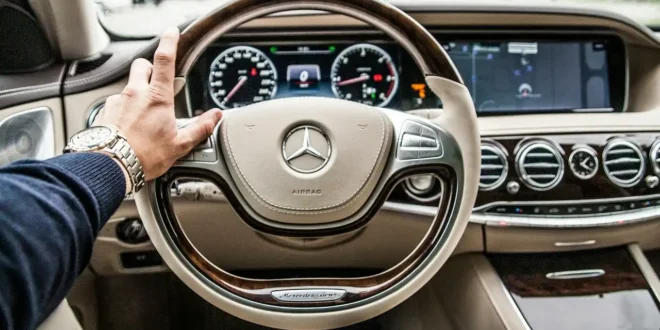Choosing the perfect car that aligns with both your lifestyle and budget requires a thoughtful and comprehensive approach. With a myriad of options available in the automotive market, the decision-making process can be both rewarding and challenging. In this guide, we’ll explore the key considerations to help you pick the ideal car that not only suits your needs but also fits comfortably within your financial boundaries.
Understanding Your Needs is the First Step
Before delving into the extensive array of car options, take a moment to reflect on your unique needs. Consider your daily routine, commuting patterns, and any specific requirements associated with your lifestyle.
For those facing a lengthy daily commute, prioritizing fuel efficiency becomes paramount to save on ongoing fuel costs. Conversely, if your driving is predominantly city-based, a compact car with easy maneuverability might be the more fitting choice. Family size is another crucial factor. Larger households often necessitate cars with ample seating and cargo space, making SUVs or minivans popular options. Each car dealership offers some or even all of these diverse options, catering to the varied needs and preferences of potential buyers. It’s essential to explore the inventory of different dealerships to find the model that not only suits your specific requirements but also aligns with your budget.
Consider Your Hobbies and Activities
Beyond the basics, factor in your hobbies and activities. If you relish outdoor adventures, a car with off-road capabilities may be an ideal companion. Conversely, if you have a penchant for sports, a sleek coupe or convertible might be more appealing.
Also, think ahead and anticipate any future changes in your life. Whether you plan to start a family, take on new hobbies, or embark on frequent road trips, considering potential changes allows you to select a car that accommodates both your present and future needs.
Establish a Realistic Budget
Setting a realistic budget is a fundamental step in the car-buying process. Your budget should encompass not only the initial purchase price but also ongoing expenses such as insurance, maintenance, and fuel.
- Define the Maximum Purchase Price: Determine the maximum amount you are willing to spend on the car itself. This decision serves as a practical guideline, helping narrow down your options and streamline the decision-making process.
- Consider Ongoing Expenses: In addition to the purchase price, factor in the long-term costs of ownership. Different cars come with varying maintenance and repair costs, so ensure your budget accommodates these expenses.
- Explore Financing Options: Look into financing options and get pre-approved for a car loan before visiting dealerships. This proactive approach provides a clear understanding of your financial constraints, guiding your choices toward cars within your budget.
Navigating the New vs. Used Conundrum
Deciding between a new and a used car significantly impacts both your initial costs and long-term ownership experience.
Advantages of New Cars:
- Latest Features: New cars often boast the latest technology, safety features, and comfort options.
- Warranty Coverage: New cars typically include a manufacturer’s warranty, providing peace of mind during the initial years of ownership.
- Personalization: When buying new, you have the opportunity to select specific features, colors, and accessories tailored to your preferences.
Advantages of Used Cars:
- Cost Savings: Used cars generally have a lower initial purchase price, offering significant savings.
- Depreciation: New cars experience rapid depreciation in the first few years, while used cars have already undergone this initial drop in value.
- More Car for Your Budget: Opting for a used car may allow you to afford a higher-end model with more features than if you were to buy a new one.
- Certified Pre-Owned (CPO) Options: If considering a used car, explore certified pre-owned options. CPO cars undergo thorough inspections, often come with extended warranties, and provide a balance between the cost savings of used cars and the assurance of new ones.
Research Different Car Models
Once your needs and budget are established, delve into researching specific car models.
- Evaluate Reliability: Look into the reliability ratings of different models through online reviews and consumer reports. Insights into long-term performance can guide your decision.
- Assess Fuel Efficiency: Consider the fuel efficiency of the models you’re interested in, especially if you have a lengthy daily commute or prioritize environmental sustainability.
- Explore Safety Features: Examine the safety features offered by each model. Advanced safety technologies contribute to a more secure driving experience.
- Consider Ownership Costs: Research the expected maintenance and repair costs for each model. Understanding these expenses helps with long-term budget planning.
- Evaluate Resale Value: Consider the resale value of the car. Models that retain their value well can be more cost-effective in the long run.
Test Drive Multiple Vehicles
Embarking on a test drive is a pivotal step in the decision-making process when selecting the perfect vehicle. This hands-on experience allows you to gauge various aspects of the car’s performance and comfort. Here’s a comprehensive guide on what to focus on during your test drive:
As you sit behind the wheel, assess the driving experience. Pay close attention to how each car handles different road conditions. A smooth and comfortable driving experience is not only enjoyable but contributes significantly to your overall satisfaction with the vehicle.
Checking the visibility from the driver’s seat is crucial for safety, especially when navigating through traffic. Ensure that you have a clear line of sight in all directions, minimizing blind spots and enhancing your overall control of the vehicle. Take a moment to observe the noise levels inside the car. Excessive noise can significantly impact your driving experience and overall comfort. Listen for any unusual sounds, road noise, or vibrations that may affect your enjoyment of the vehicle. Additionally, familiarize yourself with the technology features, including the infotainment system, connectivity options, and any advanced driver assistance systems. Test how intuitive these features are to use and whether they enhance or detract from your driving experience.
Check for Discounts and Incentives
Before finalizing your decision, check for any manufacturer incentives, rebates, or dealership promotions. Manufacturers often offer cash rebates, low-interest financing, or special lease deals. Stay informed about current promotions to maximize your savings. Some dealerships may also have exclusive discounts or promotions. Inquire about ongoing deals or incentives to make your chosen car more affordable.
Negotiate with Confidence
Negotiating the final price of the car is a standard part of the car-buying process. Approach negotiations with confidence, armed with knowledge gained from your research.
- Understand Fair Market Value: Familiarize yourself with the fair market value of the car based on your research. This knowledge empowers you to negotiate from an informed standpoint.
- Be Open to Compromises: While negotiating, be open to compromises. Adjusting the terms of the deal, exploring different trim levels, or considering additional accessories can be beneficial.
- Consider the Overall Package: Negotiate not only the purchase price but also consider the overall package. This could involve adjusting financing terms, exploring additional perks, or customizing the deal to better suit your needs.
Finalize Your Decision with Confidence
Once negotiations are complete, and you’ve agreed on the terms, take a moment to review the final details. Carefully review all paperwork before signing. Ensure that the agreed-upon details, including the price, financing terms, and any additional warranties or services, are accurately reflected. Discuss warranty options with the dealership. Understand the coverage offered and weigh the costs against potential repair expenses. This is an essential step in protecting your investment and ensuring peace of mind.

Picking the perfect car for your lifestyle and budget requires a holistic approach. By understanding your needs, setting a realistic budget, considering new vs. used options, researching different car models, and negotiating with confidence, you can navigate the car-buying process with clarity and assurance. With thorough research and careful consideration, you’ll drive away in a car that not only meets your immediate needs but also enhances your overall driving experience.
Did you find this article helpful? If so, check out the rest of our site for more informative content.
 SlushWeb Bringing Facts to Light
SlushWeb Bringing Facts to Light



